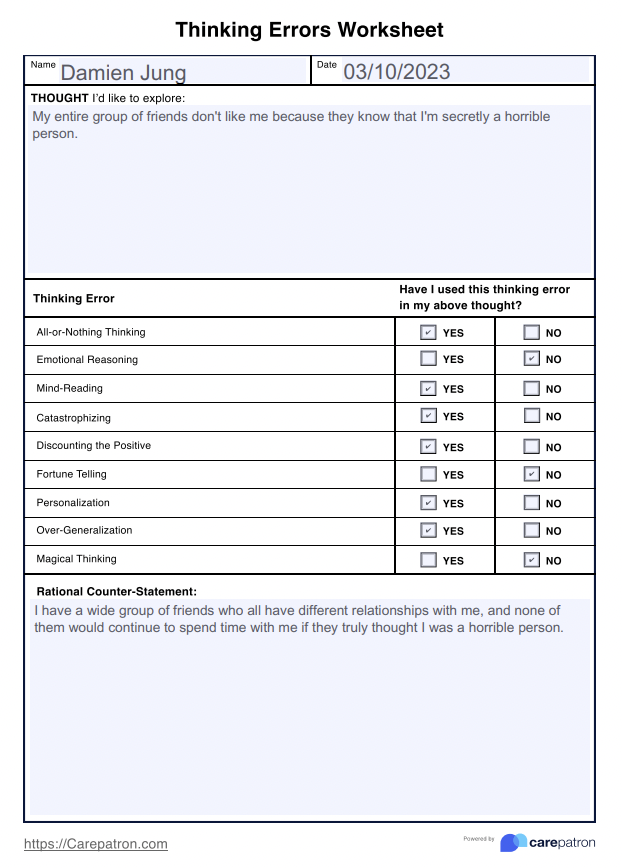When it comes to our thoughts and beliefs, it’s important to recognize that we are not always thinking clearly or rationally. Our minds can often fall into patterns of thinking that are distorted or inaccurate, leading to what are known as thinking errors. These errors can affect our emotions, behaviors, and relationships, making it crucial to identify and address them.
One way to tackle these thinking errors is by using a thinking errors worksheet. This tool is designed to help individuals recognize and challenge their cognitive distortions, ultimately leading to more balanced and realistic thinking patterns. By completing a thinking errors worksheet, individuals can gain insight into their thought processes and work towards developing healthier beliefs and behaviors.
Identifying Thinking Errors
One common thinking error is “all-or-nothing thinking,” where individuals see things in black and white terms without considering any middle ground. Another common error is “catastrophizing,” where individuals magnify the importance or consequences of a situation, leading to increased anxiety or stress. By using a thinking errors worksheet, individuals can pinpoint these distortions and begin to challenge them.
It’s also important to address “mind reading,” where individuals assume they know what others are thinking or feeling without any evidence. This can lead to misunderstandings and conflict in relationships. Additionally, “emotional reasoning” is a common thinking error where individuals believe that their feelings are facts, leading to irrational behaviors or decisions. These errors can be identified and corrected through the use of a thinking errors worksheet.
By completing a thinking errors worksheet regularly, individuals can develop a greater awareness of their thought patterns and learn to challenge and reframe their distorted thinking. This process can lead to improved emotional well-being, more positive relationships, and better decision-making skills. Over time, individuals can cultivate a more balanced and realistic perspective on themselves and the world around them.
In conclusion, thinking errors can have a significant impact on our mental health and overall well-being. By utilizing a thinking errors worksheet, individuals can begin to identify and challenge these distortions, leading to more rational and adaptive thinking patterns. Taking the time to work through these worksheets can be a valuable tool in promoting personal growth and self-awareness.
